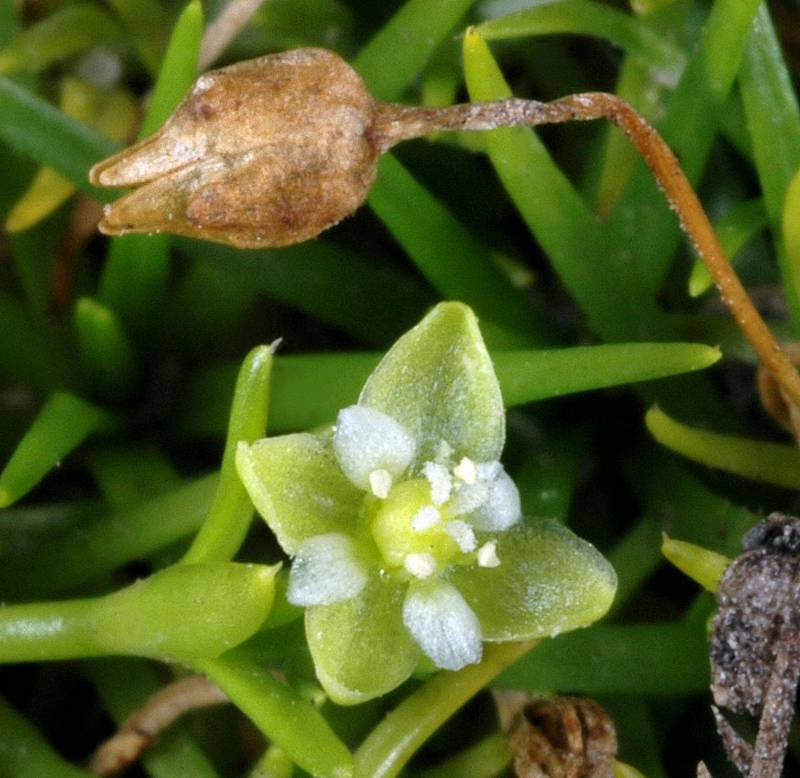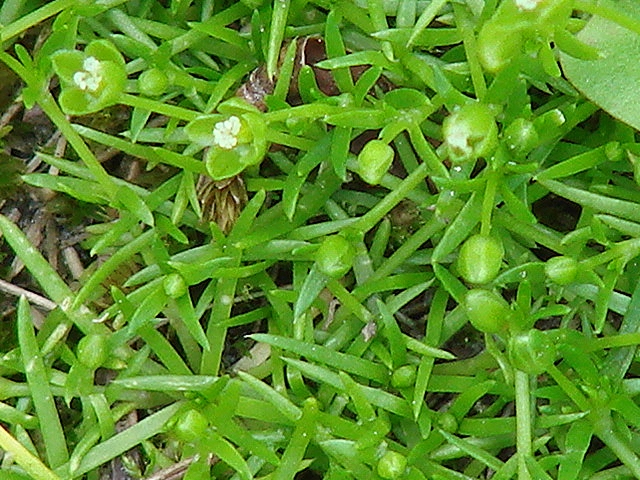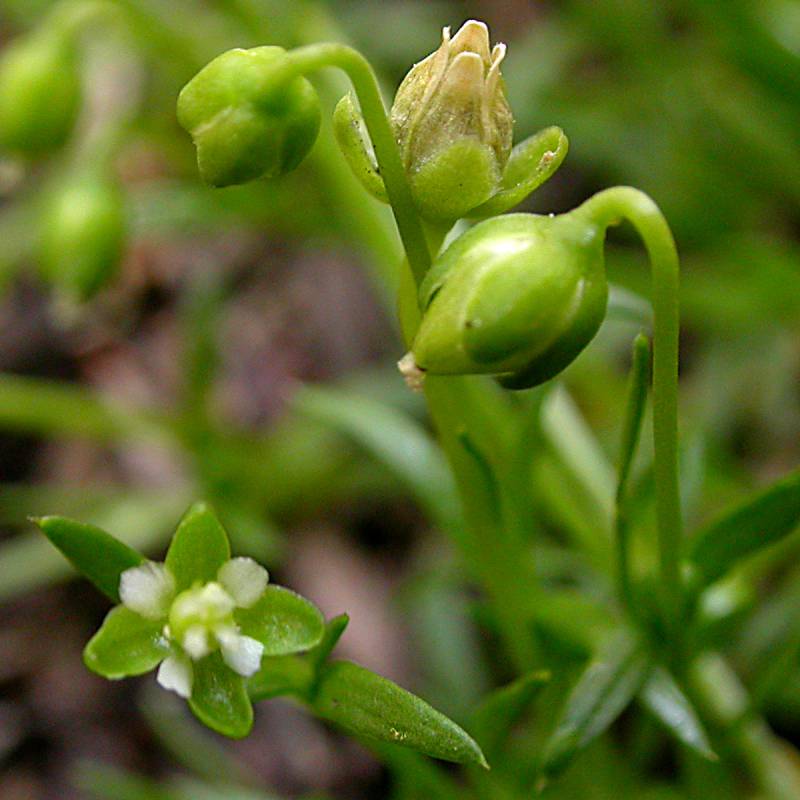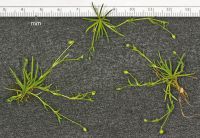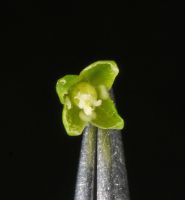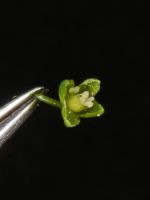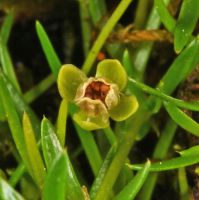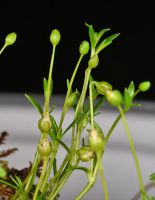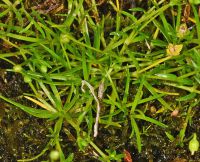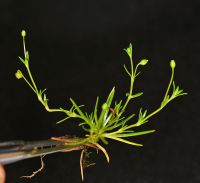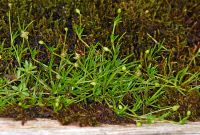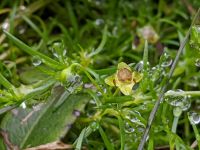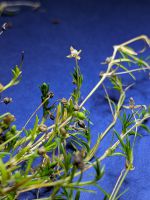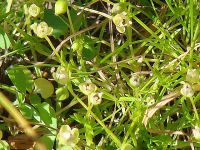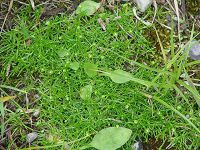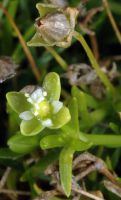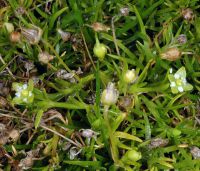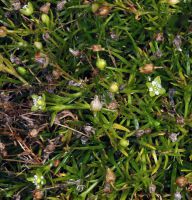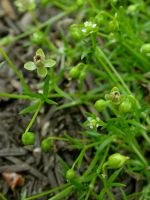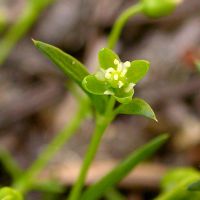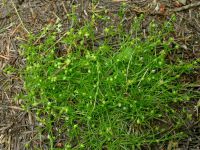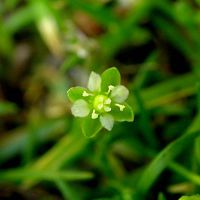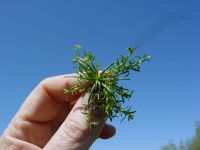Distribution: Occurring on both sides of the Cascades crest in Washington, though more common west of the crest; Alaska to California, east to the Rocky Mountains, Great Lakes region, and northeastern North America.
Habitat: Moist areas, often where disturbed, at low elevations; common garden weed.
Flowers: May-October
Origin: Introduced from Europe
Growth Duration: Perennial
Conservation Status: Not of concern
Pollination: Bees, flies
Mostly glabrous biennial or perennial, the slender stems mostly prostrate and free-rooting, up to 15 cm. long.
Leaves opposite, linear and sharp-pointed, often with bundles of secondary leaves in the axils; basal leaves 1-2.5 cm. long, numerous in persistent rosettes.
Flowers 2-several per stem; pedicels filiform, 5-25 mm. long; sepals usually 4, rounded, about 2 mm. long; petals 4, white, half as long as the sepals or wanting; stamens and styles 5.
Capsule up to twice as long as the sepals, opening by 4 or 5 valves.
Publication: Sp. Pl. 1: 128. 1753.
PNW Herbaria: Specimen records of Sagina procumbens in the Consortium of Pacific Northwest Herbaria database
WA Flora Checklist: Sagina procumbens checklist entry
OregonFlora: Sagina procumbens information
E-Flora BC: Sagina procumbens atlas page
CalPhotos: Sagina procumbens photos

